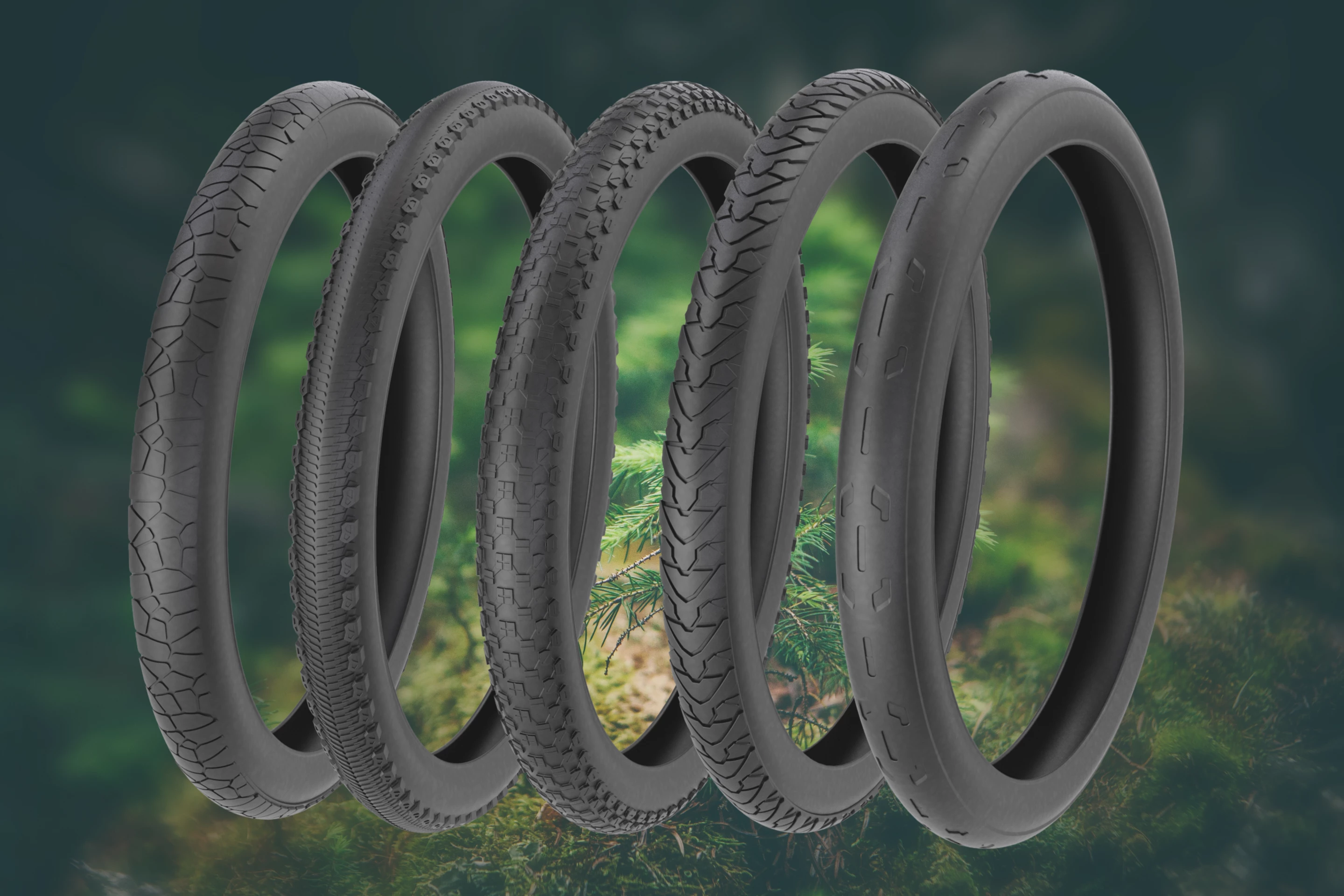Because they're made of vulcanized rubber, old tires can't simply be melted down and used to make new tires. Such is reportedly not the case, however, with new rubber-free tires made from eco-friendly elastomers.
Although conventional tires can be recycled, they're typically ground into rubber crumbs that are utilized in materials such as asphalt. Since the vulcanization process is not reversible, using them in the production of new tires generally isn't an option.
That's where Norwegian company reTyre comes in.
It has started making tires out of proprietary bio-based TPEs (thermoplastic elastomers), which are claimed to be 100% recyclable. In other words, entire tires made from the material – including both the casing and the beads – can be recycled into more tires.

Total manufacturing costs are said to be comparable to those of rubber tires, as the company's "advanced production technology" allows the tires to be produced at relatively small regional factories as opposed to larger far-away plants. This should result in much lower shipping-related CO2 emissions, and lower shipping costs. What's more, the production process is claimed to use up to 90% less energy.
"Generally speaking, TPEs are a little pricier than rubber," reTyre brand designer Friedemann Ohse told us. "But since our machines are small and our tires will be locally produced, it will save companies a lot of time and money due to short supply chains (freight costs) and reduced waiting time."
Importantly, Ohse also stated that the material lasts longer than rubber, and has better abrasion resistance.
reTyre is now seeking industry partners who may be interested in utilizing the technology in the production of their own tires. The company can be contacted via its website.
Source: reTyre






